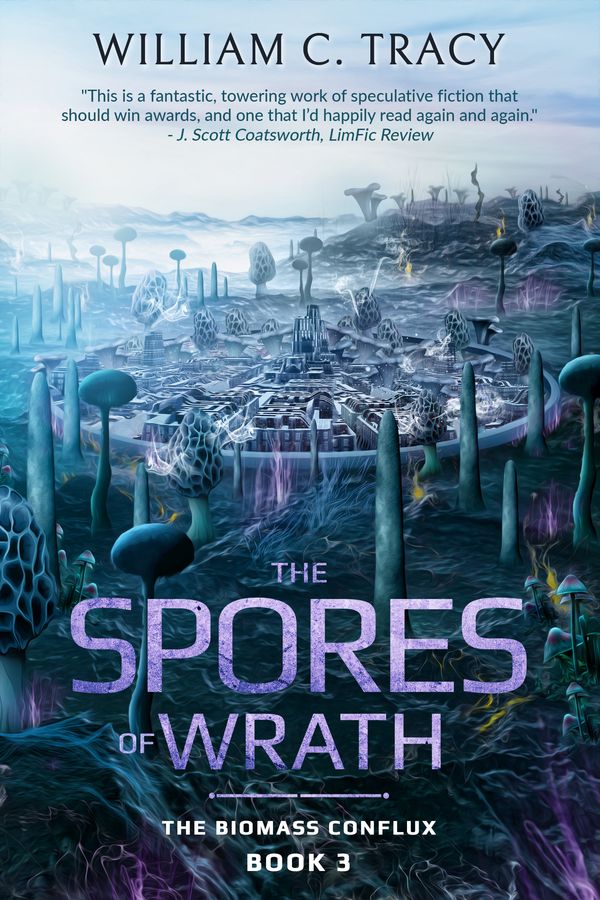
Genre: Science Fiction, Generation Ship, Colonization
Reviewer: Scott
Get It On Amazon
About The Book
The fate of Lida looms.
Agetha thought her fate was sealed, pushed to the edge of the colony to die. But with the revelation that the biomass is not only intelligent, but sentient, changes to colony are accelerating, threatening its very existence.
Those who were controlled by the biomass once again have free will. Now, the human colonists are raising their voices and for the first time really influencing their new home. The planet-wide consciousness is slipping into a crisis of identity, when it doesn’t even have a sense of self.
The wilds surrounding the colony are becoming increasingly unstable, and the colonists find themselves divided into those who have been touched by the biomass and those who are still wholly human. Can one small colony survive its inner conflicts as well as the titanic might of an entire planet?
Read the exciting conclusion to The Biomass Conflux trilogy!
The Review
A slow, grueling war breaks out between the colonists and their new world, as the Biomass is both fascinated and repelled by these strange new creatures infesting its home. Its initial impulse – to simply subsume them into itself like it has all native life on Lida – is discarded when it realizes that doing so will smother the very uniqueness of the new arrivals. It has no concept of “other” or “individuality,” and is fascinated by these ideas. So instead of overrunning the human colony, it decides to study it.
While Lida’s fungal world is complex, so is the human society here. There are four distinct groups of humans in the story (well, five, but explaining that would give too much away):
The Admins were given long life via genetic engineering , so they could take the long view for the colony. The Vagals are similarly long-lived guards, created to protect the colony and the Admins. The Generationals are humans with a more normal life span, who ran the ships on the way to Lida. And the Grounders are the children of the generationals, born on Lida.
Each group has its own biases and set of experiences, and within them, there’s a great variety pf human experiences and identities, including poly families, gays and lesbians, asexuals, transgender people, and much more. And yet somehow Tracy makes it all hang together in a beautiful tapestry of future humanity, not the checkbox of diversity that some authors create.
In this final (say it isn’t so!) volume, things are coming to a head. Some humans are adapting to the Biomass (and vice-versa), and some are steadfastly resisting it. And within the Biomass itself, contact with the humans is bringing out differing factions, for the first time threatening its ability to reach a consensus on possible actions.
I loved the discussions of free will, individuality and humanity here. What makes us human? If we are so changed that we become unrecognizable on the outside, are we still human in any way that counts? And if your personality is transferred into something or someone else, are you still, well, you?
The story draws you into this fascinating world and its myriad cross-currents, culminating in the event foreshadowed by the title. I won’t say any more lest I spoil things, but suffice it to say that the ending is both momentous and immensely satisfying, offering multiple resolutions and character redemptions.
This series is as good a piece of science fiction as I have read in ages, a story I literally did not want to put down, although one has to make allowances for food breaks and the occasional couple hours of sleep. This is a fantastic, towering work of speculative fiction that should win awards, and one that I’d happily read again and again.
The Reviewer
Scott is the founder of Queer Sci Fi, and a fantasy and sci fi writer in his own right, with more than 30 published short stories, novellas and novels to his credit, including two trilogies.

